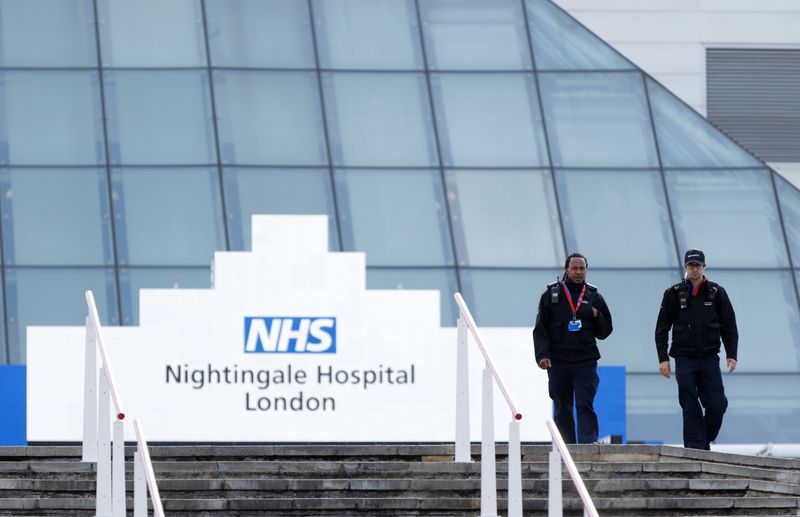LONDON (Reuters) – Ramping up COVID-19 testing earlier would have helped the United Kingdom by allowing it to trace the contacts of those infected with the novel coronavirus, the government’s top scientific advisers told a parliamentary committee on Tuesday.
The United Kingdom has overtaken Italy to report the highest official death toll from coronavirus in Europe with more than 32,000 deaths, figures released on Tuesday showed.
Chief Scientific Adviser Patrick Vallance told parliament’s Health and Social Care Committee he was sure that on reflection there would be things that could have been done differently.
“In the early phases, I think if we’d managed to ramp testing capacity quicker it would have been beneficial,” said Vallance, GlaxoSmithKline’s former president of research and development.
“For all sorts of reasons that didn’t happen,” said Vallance. “It’s completely wrong to think of testing as the answer – it’s just part of the system that you need to get right.”
The British government has stepped up testing over the past month, with 945,299 people tested so far, though opposition parties say Prime Minister Boris Johnson was too slow to accelerate the scheme.
Jenny Harries, the deputy chief medical officer, told the same parliamentary hearing that unlimited testing capacity would have allowed the government to maintain its early programme of tracing contacts of those who had tested positive.
However she said that approach would only have worked if it had been met with enough resources to track and trace those who could have been exposed to the virus.
“If we had unlimited capacity, and the ongoing support beyond that, then perhaps we would choose a slightly different approach, but with the resources that we had,” she said.
Weekly figures from Britain’s Office for National Statistics (ONS) added more than 7,000 deaths in England and Wales, raising the total for the United Kingdom to 32,313 as of April 24.
Both advisers cautioned that it was difficult to make international comparisons on death rates at this stage of the pandemic.
But Vallance said it was no surprise that London and New York had been badly hit.
“I don’t think it’s chance that two huge cosmopolitan well-connected cities with multiple imports from all over the world – New York and London – got very hard hit.”
(Reporting by Guy Faulconbridge; editing by Kate Holton)



















